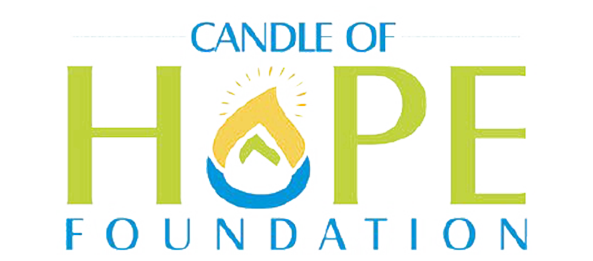Contact Us
+254 703 370 157
+254 703 375 575
Send Email
info@candleohopef.org
+254 703 370 157
+254 703 375 575
info@candleohopef.org
This program empowers women and youth by creating inclusive spaces for leadership, economic participation, and community advocacy. The Candle of Hope Foundation (COHF) supports women and youth in actively engaging in the development of agriculture and livestock value chains through training, access to inputs, market integration, and the promotion of climate-smart agribusiness. The program also focuses on developing youth capacity through vocational training, life skills coaching, and tailored mentorship aimed at enhancing employability and entrepreneurial readiness. Additionally, it addresses cross-cutting issues such as gender-based violence and reproductive health rights, including the prevention of FGM and teenage pregnancy. It promotes peacebuilding by equipping young people with the skills to prevent violent extremism. COHF further enhances community protection and resilience through research, behavior change communication (BCC), and capacity building for both communities and state actors, fostering sustainable and inclusive development.
Candle of Hope Foundation actively involves youth in project coordination and implementation by engaging them as digital enumerators, mobilizers, and field assistants. Their participation in the Project Implementation Team and Sub-County Coordination Meetings enhances inclusivity, fosters leadership, and ensures youth perspectives are integrated into planning, monitoring, and community engagement activities.
In the livestock sector, Candle of Hope Foundation empowers youth in Kitui, Makueni, and Kajiado counties by training them in basic veterinary skills, including animal disease identification, deworming, vaccination, and first aid treatment. These youth were then engaged as community-based animal health providers, offering services at subsidized rates. This model improves access to quality animal health services while creating a sustainable source of income for the trained youth. By turning their skills into a livelihood, the initiative enhances their economic empowerment, reduced livestock mortality, increased household productivity, and strengthened resilience among pastoralist communities in drought-prone regions.
On the agriculture and nutrition front, Candle of Hope Foundation empowers women and youth in the Counties of Kitui, Makueni and Kajiado through hands-on agro-nutrition training, kitchen garden demonstrations, and distribution of cone garden kits. In past the past one year over 1,000 households have benefited, with women and youth acquiring practical skills in climate-smart food production and nutrition-sensitive farming. These skills enables them to grow diverse vegetables year-round, enhancing household diets and generating income from surplus produce. The initiative particularly supports pregnant and lactating mothers and families with young children, leading to improved dietary practices, food security, and resilience. By turning agriculture into a livelihood opportunity, COHF promotes self-reliance and economic empowerment.
Candle of Hope Foundation collaborates with Ripegrow Enterprise Farm through public private partnership to conduct trainings in the counties of Kitui, Kajiado and Makueni on youth and women empowerment in climate-smart agriculture (CSA), and value-added agri-business development. 200 women and 300 youth have been reached through farmers field schools, 5 youth-led enterprises established on hydroponics.
Candle of Hope Foundation’s deliberate integration of gender equality to enhance economic empowerment for women and youth in Kitui, Makueni, and Kajiado counties is a key success towards youths’ livelihood and economic empowerment in our programming. COHF promotes gender-balanced decision-making on agricultural input use and ensured equitable participation in training and resource distribution. Women and youth are empowered to take lead roles in farming, agribusiness, and household nutrition, transforming them into active economic agents. By addressing challenges such as security and access to cash through gender-sensitive monitoring, COHF improves intervention outcomes while promoting inclusive livelihoods and resilience among traditionally marginalized groups.
Candle of Hope Foundation collaborates with Jutom Farm Biz Limited and Ripegrow Enterprises Farm through public private partnership in the counties of Makueni and Kitui to establish youth-led enterprise groups supported through business development services, access to start-up capital, and linkage to local markets. As of May 2025, 10 youth-led businesses were established and 20 youths linked for start-up capital.
Candle of Hope Foundation, in collaboration with local youth groups in Kitui and Makueni Counties conducts hands-on training sessions focused on milk utilization and value addition, including yogurt and mala production. The initiative also promotes vegetable value addition using solar dryers to extend shelf life and reduce post-harvest losses. These trainings are tailored to equip youth and women with practical agribusiness skills, enabling them to start small enterprises, improve household incomes, and enhance food security. By integrating climate-smart technologies like solar drying, the program fosters environmental sustainability while advancing economic empowerment and creating job opportunities for marginalized community members.
COHF believes that peacebuilding and social governance are related, the lack of former makes the latter impossible to realize and vice versa. Therefore, COHF tries to initiate sustainable development projects in tandem with its peacebuilding efforts. COHF supports communities to reconnect and build resilience in the face of the catastrophic impact of conflict-related trauma. Social cohesion requires more than the absence of conflict. It calls for the reknitting of social ties severed by violence.
COHF integrates trauma awareness, stress management and social cohesion training into livelihood activities. This helps to build the ability of individuals to manage stress and reduce conflict.

Candle of Hope Foundation (CoHF) is a multi-faceted women-led organization that has been operational in Kenya and Somaliland since 2016 implementing humanitarian & development initiatives through community-initiated programs that enhance empowerment, sustainability and resilience.
Copyright ©2025 Candle Of Hope Foundation . All rights reserved.